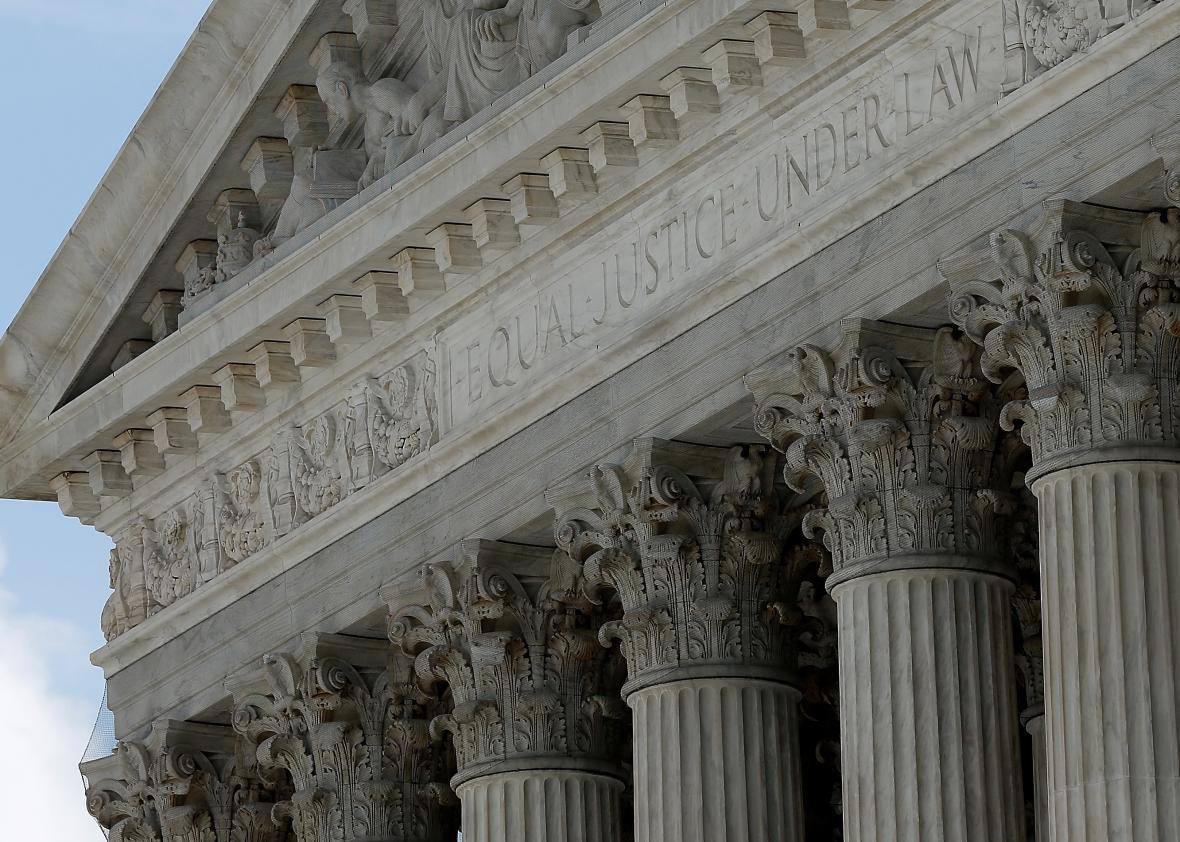In what legal scholars are already calling a precedent-setting ruling, the U.S. Supreme Court handed consumers and tech companies a big win on Tuesday in a hackles-raising, pulse-pounding case about the juiciest of judicial issues: patent law.
The case, called Impression Products, Inc. v. Lexmark International, Inc., hinged on the question of how much control companies maintain over their products after they sell them, both domestically and abroad. It bubbled up to the highest court in the land about a year ago after Lexmark, a Chinese-owned printer company headquartered in Kentucky, sued Impression, a West Virginia-based “remanufacturer” company that refilled and resold Lexmark ink cartridges both in the U.S. and abroad. Impression purchased the empty cartridges from Lexmark customers who had signed sales contracts that prohibited resale. As Bloomberg BNA’s Peter Leung explained in March, Lexmark argued two things: 1) that it should be able to stop Impression and other consumers from reselling the cartridges by enforcing its patent rights; and 2) that international sales don’t exhaust a company’s patent rights over a particular product. Impression, meanwhile, argued that selling a product forfeits a company’s right to restrict what consumers do with it and prevent that company from suing a consumer for patent infringement.
The Supreme Court decided 7-1 in favor of Impression on both counts, ruling that once a company has sold a product, it can’t dictate how the product is used—meaning that consumers have free rein to refurbish, repair, or resell items they’ve lawfully bought. “The purchaser and all subsequent owners are free to use or resell the product just like any other item of personal property, without fear of an infringement lawsuit,” Chief Justice John Roberts wrote for the majority opinion. The court also found that this so-called “first sale” doctrine—which holds that companies forfeit their patent rights once they sell a specific product to a consumer—applies to purchases made outside U.S. territory. “An authorized sale outside the United States, just as one within the United States, exhausts all rights under the Patent Act,” the majority opinion went on to say. Justice Ruth Bader Ginsburg wrote a partial dissent on the majority opinion’s international ruling while Justice Neil Gorsuch, whose April 10 swearing in came after the court heard oral arguments, took no position in the case. The court’s ruling overturned a previous decision by the U.S. Court of Appeals for the Federal Circuit that had sided with Lexmark.
The decision is a boon for consumers, the New York Times wrote late Tuesday, because it protects those who repair or resell products from being sued for patent infringement. In loosening corporate giants’ iron grip on the products they make, it may also inject greater competition into resale markets, giving consumers a wider array of purchase options and bringing down prices. As the Times noted, “printer ink is one of the world’s most expensive liquids.” Lexmark, which argued before the court that consumers should have no other choice but to purchase replacement ink from them, demands between $138 and close to $200. Impression, meanwhile, sells refilled Lexmark ink cartridges for a the relative bargain price of $72, apparently without sacrificing ink quality or performance.
The Impression ruling may have industry-shaking reach beyond printer ink, potentially affecting how smartphones, other gadgets, and even pharmaceuticals are sold and resold in the U.S. Gizmodo’s Adam Clark Estes, who has a helpful write-up of the implications of the case, gets at another dynamic at play in the decision: little guy versus corporate behemoth. Impression, which employs 25 people, was the only small resale company to stick it out amid a flurry of similar legal challenges from Lexmark. As Charles Duan observed in Slate last October, Lexmark’s aggressive, decade-long “campaign of litigation” against remanufacturers is of a piece with other innovations—including its shrinkwrap-borne licenses barring consumers from refilling and reselling its ink cartridges—designed to cut out the competition and redefine private ownership in a decidedly corporate-friendly way.
By targeting the pillars of Lexmark’s patent-hawkish business model, the Impression case predictably polarized the private sector, Ars Technica reported Wednesday. Smaller, more user-friendly outfits like Vizio, Dell, Intel, LG Electronics, HTC, Western Digital, and Costco Wholesale supported Impression while corporate giants including Qualcomm, IBM, Nokia, and Dolby—along with biotechnology and pharmaceutical companies—backed Lexmark.
But the court’s dim view of U.S. patents overseas could also spell upset for the globalized economy of the 21st century in which products hail from multiple countries and are subject to a diversity of patents. Pharmaceutical companies are particularly unenthused, fearing that their name-brand drugs sold abroad could be resold in the U.S. for marked-down prices, IPWatchdog reported.
And although it protects consumers, the ruling doesn’t necessarily put remanufacturers in the clear. Until Tuesday, legally stonewalling the opposition in court was only one avenue of obstruction at big companies’ disposal. Other corporate outfits similar to Lexmark, like HP, have opted instead to equip their printers with technology that can “recognize and block the use of unauthorized cartridges,” the Times observed Tuesday.
